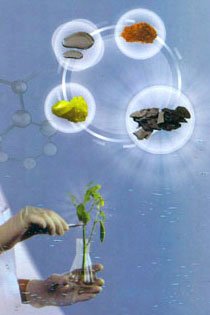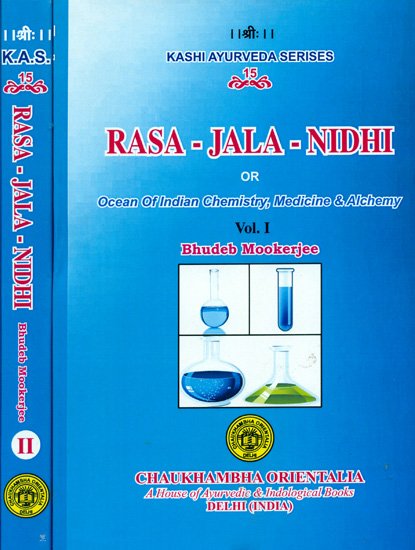Rasa Jala Nidhi, vol 3: Metals, Gems and other substances
by Bhudeb Mookerjee | 1938 | 47,185 words | ISBN-10: 8170305829 | ISBN-13: 9788170305828
This third volume of the Rasa-jala-nidhi deals with purification techniques of the Seven Metals (sapta-dhatu) and various Gems (ratna). It also deals with substances such as Alkalis (kshara), Salts (lavana), Poisions (visha) and Semi-poisions (upavisha) as well as various alcholic liquors. The Rasa-jala-nidhi (“the ocean of Iatrochemistry, or, che...
Part 2 - Iron variety (a): Munda (ordinary iron)
Munda or ordinary iron is of three different kinds, viz. mridu (soft), kuntha (obdurate), and karara (brittle).
1) Mridu or soft is that which melts quickly and has a smooth and glossy surface.
2) Kuntha or obdurate is that which can be expanded with much difficulty by hammering.
3) Karara or brittle iron is that which breaks easily, when hammered, and presents black surfaces when broken.
Of these three, the first is comparatively commendable, the second is of moderate efficacy, and the third is the least efficacious for medicinal purposes.
Properties of excellent Munda iron.
Soft iron of superior qualities (duly incinerated) is efficacious in the following diseases excess of kapha (phlegm), colic due to excess of vayu (wind), piles, dysentery, spermatorrhoea, jaundice, anemia, gulma, rheumatism, diseases affecting the belly, and dropsy. It increases blood, and appetite, and purifies the stomach.
Conclusion:
 This concludes ‘Iron variety (a): Munda (ordinary iron)’ included in Bhudeb Mookerjee Rasa Jala Nidhi, vol 3: Initiation, Mercury and Laboratory. The text includes treatments, recipes and remedies and is categorised as Rasa Shastra: an important branch of Ayurveda that specialises in medicinal/ herbal chemistry, alchemy and mineralogy, for the purpose of prolonging and preserving life.
This concludes ‘Iron variety (a): Munda (ordinary iron)’ included in Bhudeb Mookerjee Rasa Jala Nidhi, vol 3: Initiation, Mercury and Laboratory. The text includes treatments, recipes and remedies and is categorised as Rasa Shastra: an important branch of Ayurveda that specialises in medicinal/ herbal chemistry, alchemy and mineralogy, for the purpose of prolonging and preserving life.
